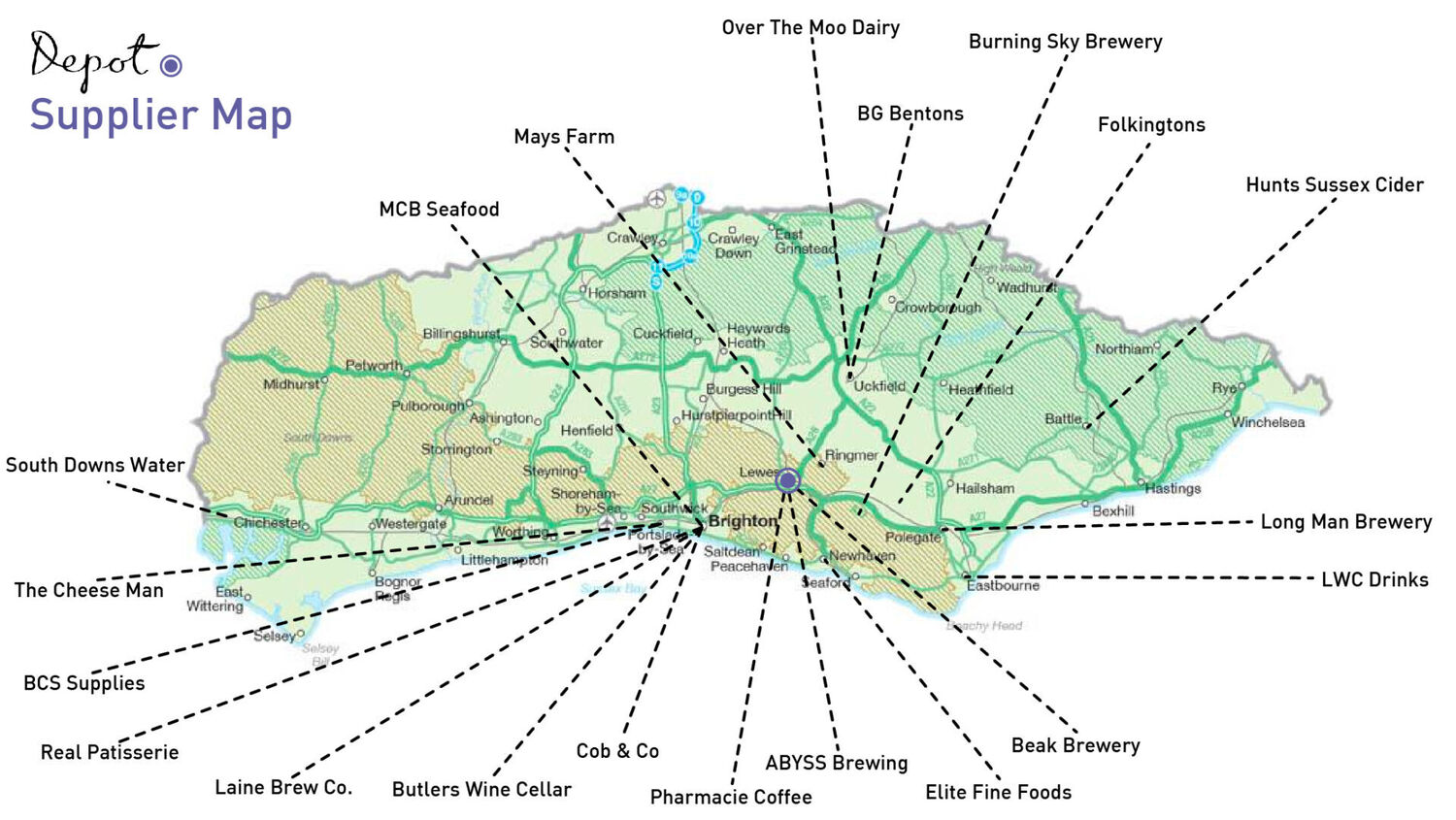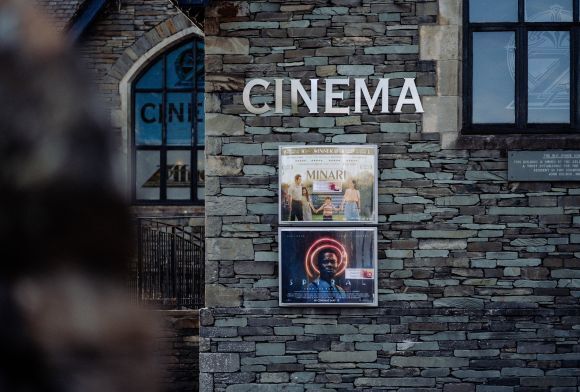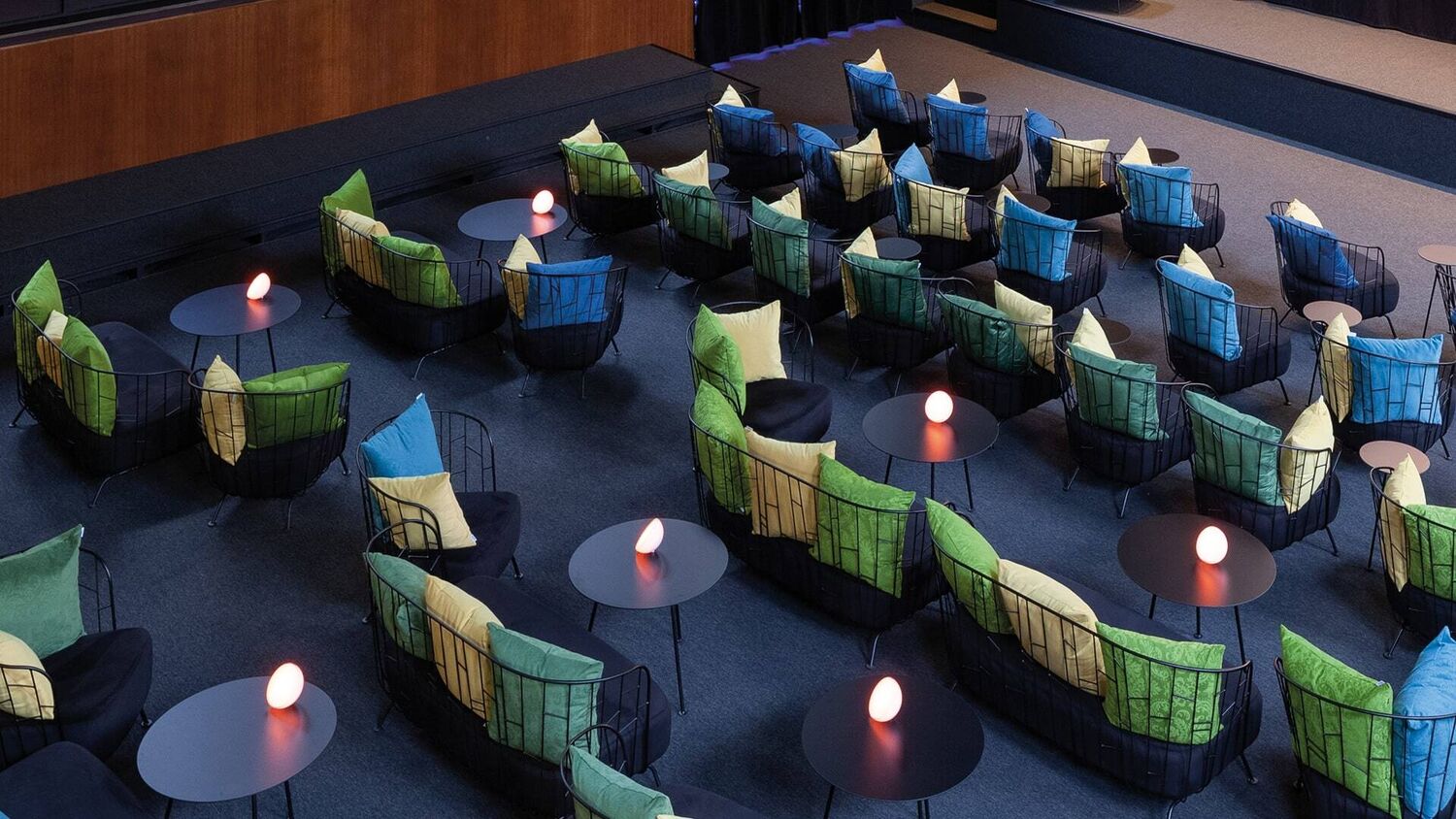The Taste of Cinema
For many cinema-goers, food and drinks are a central part of the big screen experience. For some, it’s the difference between a good and a great outing.
For most cinema operators, it represents a significant share of total revenue, typically between 15% and 30%, depending on the size and type of venue. In some cases, it has become an integral part of the cinema’s identity and programming, with a dedicated bar or restaurant.
Yet for many, cinema food still conjures up the same familiar image: salty, sugary, high-calorie snacks like popcorn, nachos, and large soft drinks. These comfort foods may be popular, but they’re not exactly good for our health. And their environmental footprint is hard to ignore, from the sourcing and transport of ingredients to packaging and waste.
At the same time, audience expectations are evolving. Beyond cinema, people are increasingly willing to spend more on healthier, local, or sustainably sourced options.
So how can cinemas respond to changing expectations and turn their menus into something more? What are operators already doing to rethink food and drink as part of a more balanced, meaningful, and memorable experience?
This article explores the initiatives, strategies, and creative approaches that are reshaping how we eat at the cinema.
A French recipe for change
The French initiative Mieux Manger au Ciné is tackling the challenge of better cinema food head on. Launched by food agency Alimentation Générale and cinema operator Haut et Court, this non-profit association helps cinemas offer healthier, more sustainable food and drink options. Members gain access to a curated selection of products from responsible brands, bridging the gap between culture and conscious eating.
The focus is on minimally processed, locally sourced products with clear origins and short ingredient lists. Nothing contains palm oil, and snacks have on average 11% less fat than typical cinema offerings. All items are artisanal and made in France and, of course, they must taste good.
To select these products, Mieux Manger au Ciné organises an annual national competition chaired by a renowned French chef. The goal: identify cinema-friendly snacks that are new, delicious, healthy, and have a low carbon footprint. The 2024 winner was Chiche!, a savoury mix of roasted chickpeas, green peas, fava beans, almonds, cashews, and peanuts coated in spices. A crunchy, protein-rich alternative to popcorn. Other selected items include kefir drinks, veggie balls, dried fruits, ice creams, and chocolate bars.
To support its dozens of member cinemas across France, the association provides communication materials and helps organise events that bring food and film together, from special screenings and food markets to talks and conferences. It also shares best practices through articles and webinars on topics such as sourcing local producers and managing food waste.
By connecting food producers, cinema operators, and cultural stakeholders, Mieux Manger au Ciné fosters collaboration, experimentation, and a shared vision for more meaningful, sustainable cinema snacks. It helps venues rethink their food offer without compromising on taste or values.
For example, several cinemas have taken this philosophy even further, placing it at the heart of their identity and showing how sustainability and food can fully reshape the cinema experience.
From the farm to your cinema

Depot, a cinema in Lewes, England, has made environmental sustainability central to its identity, aligning its operations with the Sustainable Development Goals and the principles of the UN Paris Agreement.
This commitment is reflected throughout the venue, especially in its food offering. The on-site restaurant serves dishes and drinks made with fresh, seasonal ingredients sourced as locally as possible. The menu evolves with the seasons to highlight the rich produce of southeast England.
All suppliers are carefully selected based on their ethics, locality, and environmental impact. The Depot not only partners with those who share its values but also showcases their stories to its audience. A notable example is a nearby family-run farm and butcher supplying grass-fed beef and other locally sourced products with minimal transport and packaging.
This approach extends to beverages as well, with teas, ciders, and beers sourced from small local producers and family-run businesses, further strengthening the cinema’s ties to the community.
While waste accounts for 29 percent of the cinema’s annual carbon footprint, the Depot’s recycling rate consistently reaches between 70 and 80 percent, thanks to efficient management and staff training. Food scraps are converted into fertiliser and energy, and coffee grounds are repurposed into biofuel. The team actively applies circular economy principles wherever possible.
Similarly, Café des images, an arthouse cinema in Normandy, France, has a café-restaurant whose kitchen is certified with the French “Écotable” label, awarded to restaurants committed to reducing their environmental impact.
What makes them unique is how they bring local producers directly to cinemagoers. Every Tuesday afternoon, the Café du marché hosts a weekly mini-market showcasing local farmers and producers. Visitors can purchase fresh fruits, vegetables, and other local products while enjoying their cinema visit. They also offer curated product baskets that evolve with the seasons, featuring items from nearby farms.
These healthier, more sustainable options enhance the overall cinema-going experience, placing food front and center in these cinemas’ identities. For many, it is no longer just an add-on but a core part of what brings film, food, and community together.
A great example is KINO Rotterdam and their on-site burger restaurant NIKO, which has become a destination in its own right. You can read more in our previous article about KINO and NIKO.
This trend is growing across Europe, but for some venues, it has always been part of their DNA.
Where film meets Italian vegetarian cuisine
For over 40 years in the Scottish Lake District, Zeffirellis has successfully combined food and cinema in and around the small town of Ambleside. They serve Italian vegetarian cuisine and offer the unique option to reserve a two-course meal alongside your cinema seat.
What sets Zeffirellis apart is their family of four related vegetarian venues, all in Ambleside. The main Zeffirellis restaurant sits alongside two cinema screens. Just a few hundred meters away, Zeffs by the Park offers two more screens. Fellinis, their fine-dining vegetarian restaurant opened in 2009, also features a cinema screen upstairs. Plus, Zeffirellis hosts a jazz bar, regularly featuring international artists. Zeffirellis even offers takeaway food for those who want to enjoy their dishes elsewhere.
Similar concepts are emerging all over Europe, with cinemas developing high-quality food and drink offerings. These venues create spaces for their local communities to gather and enjoy an evening out, whether or not a film is on the agenda. Sometimes the food experience itself encourages visitors to stay for a screening or come back for one later.

When food becomes part of the story
Across Europe, some cinemas have made food-and-film pairings a part of their programme, turning screenings into multisensory experiences.
In Paris, Cinéma L’Épée de Bois organises every month Gourmépée, a special event where screenings are paired with snacks specially created to echo the theme of the film. This small, local cinema collaborates with well-known restaurants and independent chefs to design each tasting. The idea is that films are not only to be seen, but also to be lived through flavour.
In Prague, Kino Přítomnost has turned the combination of film and food into a signature experience. They regularly host Film & Breakfast or Film & Dinner, events where each screening is paired with a menu thoughtfully inspired by the film itself. Whether savoury or sweet, meat or vegetarian, each dish echoes the film’s tone, setting, or storyline.
In Milan, spazioCinema has gone a step further by transforming one of its ten screens into a full cinema-restaurant, offering a daily programme of screenings alongside lunch, aperitivo or dinner service. The dishes are ordered before the screening begins and served on small tables beside each seat, turning the entire experience into an elegant, savoury night out.
If you think this is just a passing trend or gimmick, think again. Several companies operating outside the traditional cinema space have been fully focused for years on food-driven cinematic experiences. Events like Fork n Film in the US, Cinema Culinair in the Netherlands, and Taste Film in the UK highlight the strong demand. These experiences show that audiences are willing to pay a premium for a night where food and film come together in a truly unique way.
These events are more than novelties. They build audience loyalty, can support or even elevate your programming, and generate visibility. Whether it's through local press, social media buzz, or simple word of mouth, these experiences help cinemas stand out in a competitive landscape, and become true community destinations.

What’s next on the menu?
Audiences love to eat when they watch films and, increasingly, they’re looking for more than just popcorn. They crave variety, healthier options, and food that reflects the local community.
Cinemas across Europe are showing that it’s possible to meet these expectations in creative, sustainable, and profitable ways. From sourcing ingredients from local producers to making food and drink a core part of your cinema’s identity, the potential to enrich the experience and build loyalty even beyond your local community is huge.
Cinemas are uniquely placed to lead a cultural shift, showing that food can be sustainable, inclusive, and part of a deeper storytelling experience.
So, what will you do to improve the taste of your cinema?
10.09.2025

Guillaume Branders
Guillaume Branders is the founder of studio funambule, a consultancy that helps film and cinema professionals connect, grow, and innovate. Based in Belgium, he has been immersed in the cinema industry for almost 15 years. Starting at Cinema Aventure, an arthouse venue in the center of Brussels, he later worked as the Head of Industry Relations at UNIC, the trade association of European cinemas and their national associations. After two years working for a cinema software company, he decided to launch his own venture and explore new ways to drive innovation in the cinema industry. more from the author


